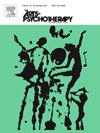Dance therapy and the criminal justice system: Considering traditional and critical perspectives in prisons, forensic mental health and addiction care
IF 1.5
3区 心理学
Q3 PSYCHOLOGY, CLINICAL
引用次数: 0
Abstract
Dance therapy can be beneficial for people detained in prisons and other correctional facilities, yet conceptualising research and practice with incarcerated participants can be complex and multifaceted. On one hand, traditional perspectives align with behaviourism and take a medical approach to analysing and articulating the benefits of dance therapy for criminal cohorts. On the other hand, social justice perspectives highlight the limitations of individual behavioural change and look to broader socio-political contexts to explain the ways in which institutions and systems adversely impact the lives and experiences of criminalised people. Taking these different views into consideration, our article blends traditional (behavioural) and contemporary (critical) perspectives and seeks to crystalise findings from the research literature in a way that honours the relevance of two distinct, yet complementing, paradigms. Beginning with a systematic review, we draw on the Risk-Need-Responsivity and Good Lives Model to contextualise data from an objectivist standpoint. We then position ourselves more critically to examine the constraints of the medical model and suggest alternatives to treatment-focused discourse. Our paper concludes with recommendations for further research and practice which are rooted in our belief that more collaborative models for engaging people in prison and related settings are possible, and worth pursuing.
舞蹈疗法和刑事司法系统:考虑监狱、法医心理健康和成瘾治疗的传统和批判观点
舞蹈疗法对被关押在监狱和其他惩教机构的人有益,但对被监禁参与者的研究和实践进行概念化可能是复杂和多方面的。一方面,传统观点与行为主义一致,并采取医学方法来分析和阐明舞蹈疗法对犯罪群体的好处。另一方面,社会正义观点强调个人行为改变的局限性,并着眼于更广泛的社会政治背景,以解释制度和制度对犯罪人群的生活和经历产生不利影响的方式。考虑到这些不同的观点,我们的文章融合了传统(行为)和当代(批判)的观点,并试图以一种尊重两种截然不同但又互补的范式的相关性的方式,从研究文献中明确发现。从系统回顾开始,我们利用风险-需求-反应和美好生活模型从客观的角度对数据进行背景分析。然后,我们更加批判性地审视医学模式的局限性,并提出以治疗为中心的话语的替代方案。我们的论文最后提出了进一步研究和实践的建议,这些建议植根于我们的信念,即在监狱和相关环境中吸引人们的更多合作模式是可能的,值得追求。
本文章由计算机程序翻译,如有差异,请以英文原文为准。
求助全文
约1分钟内获得全文
求助全文
来源期刊

Arts in Psychotherapy
Multiple-
CiteScore
3.20
自引率
11.10%
发文量
66
期刊介绍:
The Arts in Psychotherapy is a dynamic, contemporary journal publishing evidence-based research, expert opinion, theoretical positions, and case material on a wide range of topics intersecting the fields of mental health and creative arts therapies. It is an international peer-reviewed journal publishing 5 issues annually. Papers are welcomed from researchers and practitioners in the fields of art, dance/movement, drama, music, and poetry psychotherapy, as well as expressive and creative arts therapy, neuroscience, psychiatry, education, allied health, and psychology that aim to engage high level theoretical concepts with the rigor of professional practice. The journal welcomes contributions that present new and emergent knowledge about the role of the arts in healthcare, and engage a critical discourse relevant to an international readership that can inform the development of new services and the refinement of existing policies and practices. There is no restriction on research methods and review papers are welcome. From time to time the journal publishes special issues on topics warranting a distinctive focus relevant to the stated goals and scope of the publication.
 求助内容:
求助内容: 应助结果提醒方式:
应助结果提醒方式:


